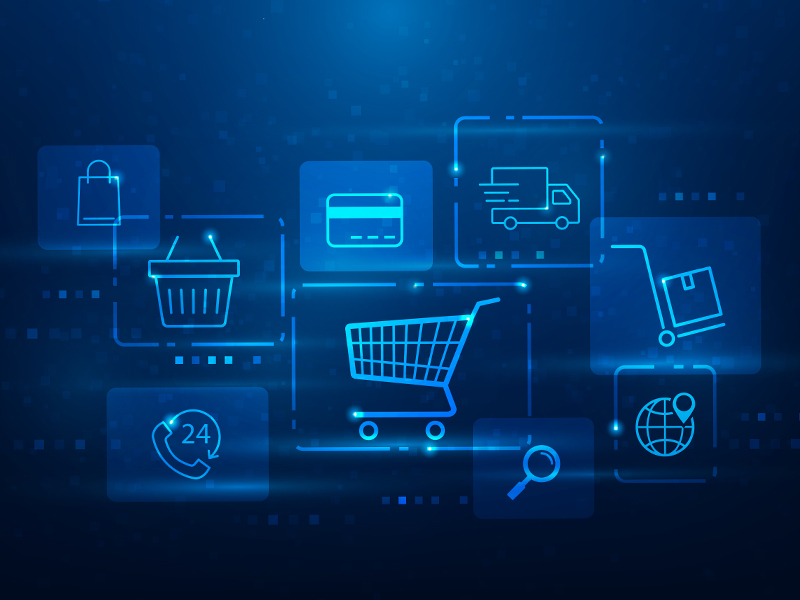
In today’s competitive online marketplace, e-commerce brands must go beyond simply having a website. Success depends on implementing strategic, data-driven digital marketing approaches that attract the right audiences, build trust, and convert visitors into loyal customers. As more consumers shift toward online shopping, the role of effective digital marketing becomes even more critical. For e-commerce businesses aiming for consistent growth and higher ROI, here are the most powerful digital marketing strategies that deliver real results.
Search Engine Optimization (SEO): The Backbone of Organic Growth
SEO remains one of the most essential tools for long-term e-commerce success. When done right, it helps your brand appear in top search results, bringing in high-intent organic traffic without paying for ads.
Key SEO strategies include:
• Keyword optimization: Target transactional and long-tail keywords that align with user intent, such as “buy running shoes online” or “best skincare serum.”
• On-page SEO: Optimize product titles, meta descriptions, images, URLs, and category pages.
• Technical SEO: Improve site speed, mobile responsiveness, secure browsing (HTTPS), and structured data for product pages.
• Content-driven SEO: Create helpful articles, product guides, and comparison blogs that attract search traffic and assist with conversions.
• Backlink building: Acquire high-quality backlinks to strengthen domain authority.
For e-commerce brands, strong SEO means more qualified visitors ultimately increasing conversions and revenue.
Pay-Per-Click Advertising (PPC): Instant Visibility & Measurable Results
PPC advertising allows e-commerce brands to appear in front of customers instantly. Whether through Google Ads, Meta Ads, or Amazon Advertising, PPC campaigns help you target the right audience with predictable ROI.
Effective PPC techniques include:
• Search ads for users actively looking to buy.
• Shopping ads that showcase product images and prices.
• Retargeting ads to reach users who visited your site but didn’t purchase.
• Lookalike audience targeting on Facebook and Instagram to reach people similar to your best customers.
• Performance Max campaigns to leverage AI for multi-platform visibility.
With PPC, brands can scale quickly, test demand for new products, and increase sales efficiently.
Social media is no longer optional for e-commerce brands. It's a powerful channel for storytelling, customer engagement, and product discovery.
Social strategies that drive impact:
• Consistent content creation reels, product demos, testimonials, behind-the-scenes clips.
• Influencer marketing collaborate with creators who match your niche.
• Shoppable posts on Instagram & Facebook to reduce friction in buying.
• User-generated content (UGC) customers’ photos, reviews, and unboxing videos create trust.
• Interactive campaigns polls, contests, giveaways, and quizzes.
Social media helps brands build identity, maintain relationships, and establish a loyal community that drives repeat sales.
Email Marketing & Automation: Turning Visitors into Repeat Buyers
Email marketing remains one of the highest ROI channels for e-commerce brands. Automated email workflows nurture customers, recover abandoned carts, and increase repeat purchases.
Must-have email automation flows include:
• Welcome series: Introduce your brand and offer a first-purchase discount.
• Cart abandonment emails: Remind customers of products they left behind.
• Browse abandonment emails: Follow up when someone views but doesn't add to cart.
• Post-purchase follow-up: Build trust, request reviews, and suggest related products.
• Re-engagement campaigns: Bring back inactive customers.
Personalized email campaigns help e-commerce brands stay connected with customers and increase lifetime value.
Content Marketing: Educate, Inspire, and Convert
Content isn’t just for blogs it influences every stage of the customer journey. When e-commerce brands provide helpful, engaging content, they build authority and win buyer trust.
Content types that work best:
• Product comparison guides
• How-to articles and videos
• Buying guides
• Seasonal content
• Customer success stories
• Lifestyle content related to the brand
High-quality content positions your brand as a trusted resource while improving SEO and boosting conversions.
Influencer & Affiliate Marketing: Expanding Reach through Partnerships
Consumers trust reviews and recommendations more than traditional ads. Influencer and affiliate marketing help e-commerce brands tap into new audiences and build authenticity.
Effective strategies include:
• Partnering with micro-influencers for niche credibility
• Creating an affiliate program with commission-based rewards
• Running unboxing, review, and testimonial campaigns
• Collaborating on product launches or limited-edition collections
Influencers provide social proof that can significantly increase click-through rate (CTR) and conversions.
Conversion Rate Optimization (CRO): Turn Traffic into Sales
Even with high traffic, conversions may remain low without optimizing the website experience.
CRO strategies include:
• Improving site navigation
• Offering clear product descriptions
• Upgrading product images and videos
• Adding live chat support
• Highlighting reviews and trust badges
• Simplifying checkout
• Offering easy returns and multiple payment options
Small tweaks in CRO can lead to major improvements in sales.
Analytics & Data-Driven Decisions: Scaling What Works
Data is the backbone of successful e-commerce marketing. By analyzing customer behavior, traffic sources, and campaign performance, brands can make smarter decisions.
Key metrics to track:
• Cost per acquisition (CPA)
• Return on ad spend (ROAS)
• Conversion rate
• Average order value (AOV)
• Customer lifetime value (CLV)
• Cart abandonment rate
Data helps brands optimize campaigns, reduce wasted ad spend, and maximize profitability.
Digital marketing for e-commerce is a dynamic, ever-evolving space. Brands must use a strategic blend of SEO, PPC, social media, content marketing, email automation, and data analytics to stand out in the crowded online marketplace. When these tools work together, they create a powerful ecosystem that attracts customers, builds trust, and drives long-term business growth.
For e-commerce brands ready to scale, partnering with an experienced digital marketing agency ensures expert strategy, seamless execution, and measurable success.

Let's Connect
Don't wait until tomorrow. Talk to one of our consultants today and learn how to start leveraging your business.